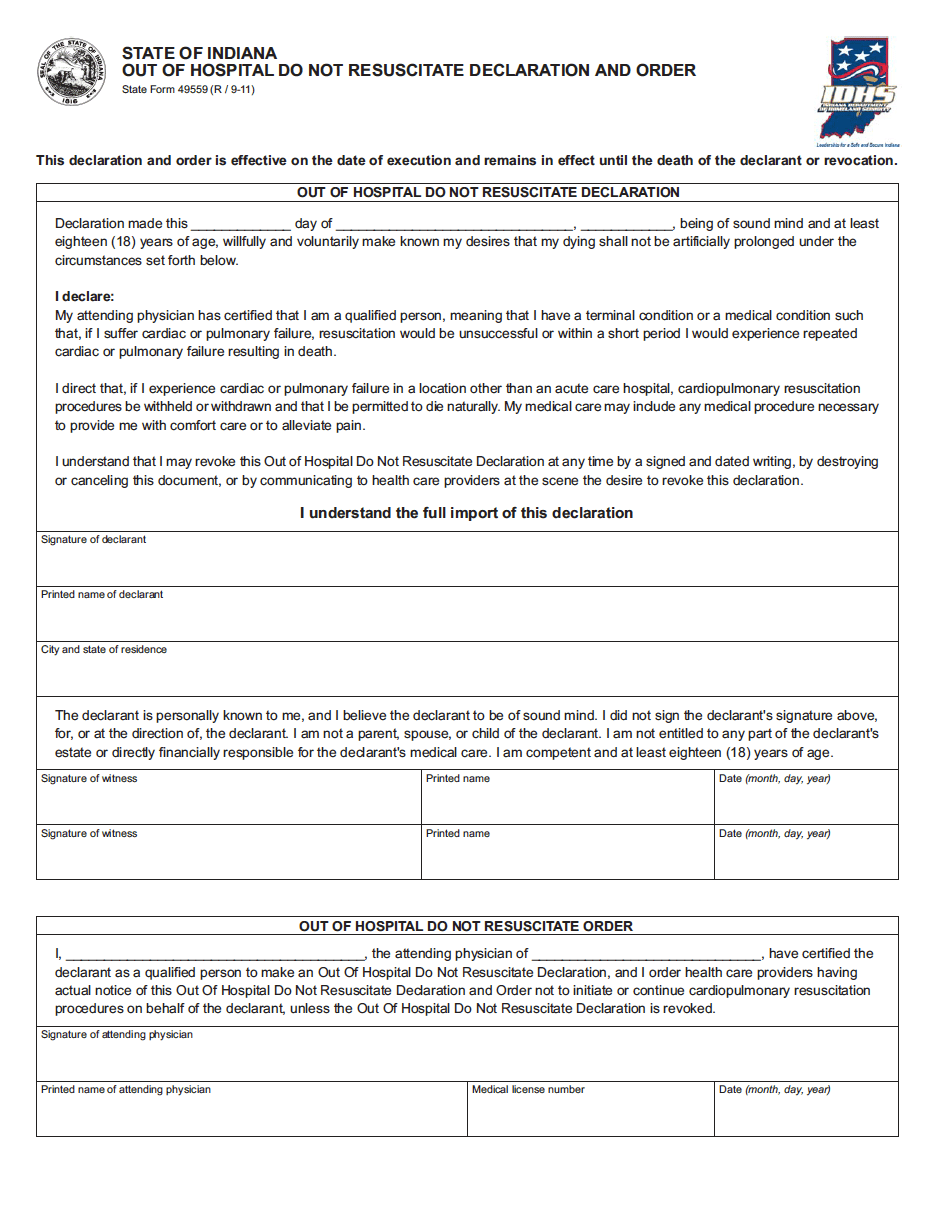Indiana Advance Directive Form
An Indiana advance directive is a two (2) part document that elects an agent to carry out a declarant’s medical wishes or make decisions about their health-related care. The agent has this ability if the declarant becomes incapacitated or passes away. Once the form becomes active, the agent must inform the physician of the declarant’s desired medical treatment. If the advance directive does not include details on a particular type of treatment, such as medication or surgery, then the responsibility falls onto the agent. When making this choice, the agent must consider what the declarant would want in this situation, along with their cultural, spiritual, or religious beliefs.
The declarant and two (2) witnesses must sign the form. The witnesses must be of sound mind and at least eighteen (18) years of age. The assigned person cannot be the declarant’s parent, spouse, or child. Additionally, they cannot be responsible for the declarant’s finances or acquire their property if they pass away.
The advance directive contains five (5) sections. The first part, called the “Out of Hospital Do Not Resuscitate Declaration and Order,” prohibits the declarant from receiving artificial life-prolonging care in a non-hospital setting. On the other hand, the second part allows the physician to take measures to extend the declarant’s life if they become incapacitated.
The third part, called the “Indiana Declaration” (also known as a living will), allows the declarant to state their preferences for medical care. The creator of this form completes it after being diagnosed with a terminal illness, such as cancer or Alzheimer’s disease. If the sickness progresses to a point where they cannot convey their wishes, a physician must verify the patient’s mental or physical condition in writing. Once the doctor confirms the declarant’s health status, the medical power of attorney becomes effective.
In the fourth section of the form (the “Indiana Physician Orders for Scope of Treatment” (POST)), the declarant selects their preferences for treatment if they cannot make decisions for themselves. While optional, the document allows them to choose whether or not they want cardiopulmonary resuscitation (CPR), medical interventions, antibiotics, or artificially administered nutrition. The patient (or representative) must sign, in addition to the physician. By signing, the doctor agrees to carry out the patient’s medical wishes as stated in the form.
The fifth and final part is called the “Indiana Health Care Representative Appointment,” which assigns an agent to make medical decisions on behalf of the declarant. The form does not go into effect unless the declarant cannot speak for themselves due to a severe illness or injury or they pass away. It lets the agent make decisions relating to life support, organ donation, and body disposal.
Laws: IC 16-36-4-10 and IC 16-36-1-7
Signing requirements (IC 16-36-1-6(a)(3), IC 16-36-1-7(b)(3)),(IC 16-36-4-8(b)(5)(c))): An advance directive executed in Indiana must be signed by the delegate and witnessed by an adult who meets witness criteria provided by state law.
